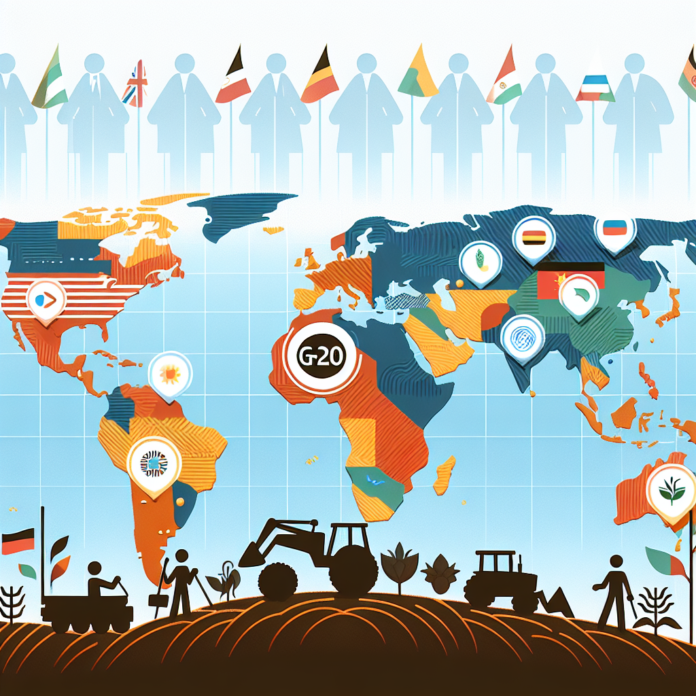Opinion: G-20 Planning for Production in Challenging Conditions
Opinion: G-20 Look Ahead: Preparing to Produce in Challenging Environments
As the world faces unprecedented challenges, the G-20 summit is poised to address pressing issues surrounding agricultural production in increasingly difficult environments. With climate change, population growth, and resource scarcity intensifying, the necessity for innovative solutions in agriculture has never been more crucial.
Understanding the Global Context
Agricultural sectors worldwide are under immense pressure due to extreme weather patterns, soil degradation, and water scarcity. These issues are exacerbated by climate change, making it imperative for global leaders to collaborate on sustainable practices and technological advancements. The G-20 summit provides a platform for nations to discuss and implement strategies that ensure food security while minimizing environmental impact.
Technological Innovations in Agriculture
Embracing technology is essential for modern agriculture to thrive in adverse conditions. Innovations such as precision farming, drought-resistant crops, and vertical farming are transforming traditional agricultural practices. These technologies not only boost productivity but also reduce the ecological footprint of farming activities. By promoting research and investment in these areas, G-20 nations can lead the way in sustainable agriculture.
Policy and Collaboration
Effective policy frameworks are vital for addressing the challenges of agricultural production in harsh environments. G-20 countries must work together to develop policies that incentivize sustainable practices, support smallholder farmers, and foster international cooperation. By sharing knowledge and resources, these nations can create a resilient global food system that withstands the test of a changing climate.
Empowering Farmers and Communities
Empowering local farmers and communities is crucial for sustainable agricultural development. Education and training programs can equip farmers with the skills needed to adopt new technologies and practices. Moreover, ensuring access to financial resources and markets will enable farmers to thrive and contribute to food security on a global scale.
The Path Forward
As the G-20 summit approaches, it is essential for global leaders to prioritize agriculture in their discussions. By focusing on innovation, policy, and community empowerment, they can pave the way for a future where agriculture flourishes despite environmental challenges. The decisions made at this summit will have lasting impacts, shaping the future of food production for generations to come.


